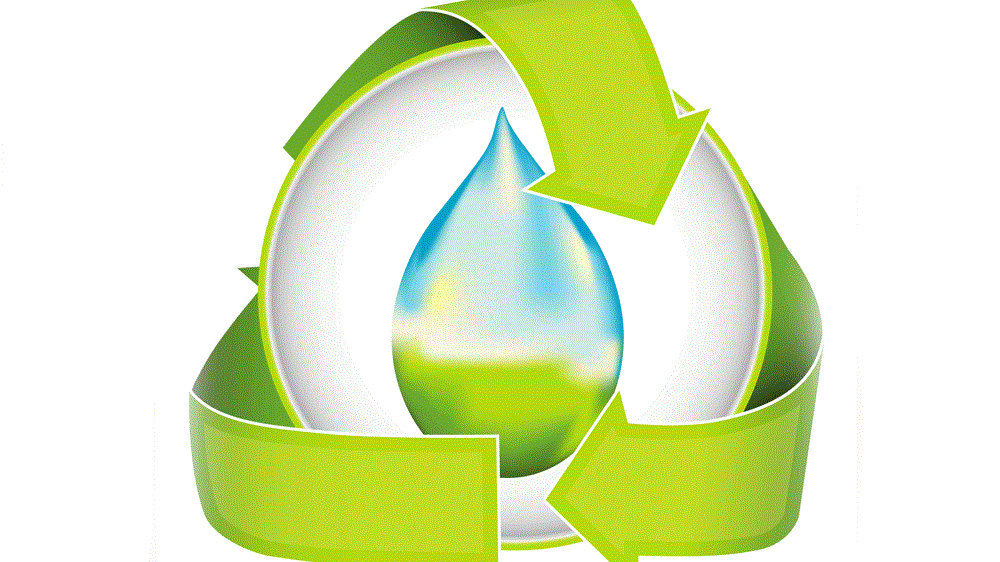

While the issue of water scarcity has been simmering for decades, the world is quickly reaching a point where urgent action is needed across the globe to stop and revert our society’s problematic patterns of water use or risk irreparable damage to the environment.
The United Nations forecasts are that the planet will have a water deficit of 40 per cent between now and 2030 if we continue with current consumption habits.
Limited natural resources, rising population growth, the increasingly unpredictable weather patterns caused by climate change and changing consumption patterns have all played a role.
To address this, a concerted effort by governments, corporations and individuals is required to tackle the overexploitation of resources and climate crisis and make better use of the resources available to society by moving towards more circular and greener economic models.
Recent breakthroughs have made it possible to further optimise tertiary treatment processes, helping to lower the stress on natural aquifers and reduce saline intrusion
Water reuse
In the Middle East, there are examples of both of these approaches being taken, as water scarcity is already an acute issue that has demanded the latest innovations in terms of desalination and water treatment technology.
But today, the technological barriers are constantly being pushed to achieve these water reuse goals, and a number of recent breakthroughs have made it possible to further optimise tertiary treatment processes, helping to lower the stress on natural aquifers and reduce saline intrusion.
One example is the growing use of biological membrane reactors. Another area of exploration is enhancing processed water with nutrients in order to reduce the use of chemical fertilisers.
The objective in all instances is to return this resource to the environment with a level of quality similar or even higher than before being used, as well as to find a value for the pollutants that the water contains derived from its use.
The processing of highly polluted water for immediate reuse has already become a key focus for Acciona in the region. In Egypt, four of Acciona’s wastewater treatment plants now produce purified water equivalent to that originated from a population of 500,000 inhabitants.
Separate to water reuse, a circular economy approach to waste water treatment also demands the holistic reuse of the solid waste, with one of the most advantageous outlets for this being as a fertiliser for agriculture, due to the high content of organic matter, nitrogen and phosphorus.
Acciona’s Ramses project in Spain is a research scheme part funded by the European Commission expressly aimed at delivering more efficient solutions for the reuse of wastewater in anticipation of rising costs as the quality requirements for regenerated water become ever more demanding.

The Life Ramses project seeks to improve the quality of reclaimed water by applying new anaerobic purification techniques with plastic supports on the principal line of a wastewater treatment plant, reducing treatment costs and increasing the volume of irrigation water in agriculture
Greening the economy
With regards to the circular economy, the Middle East region, which has some of the world's largest oil exporting countries, has already begun its journey to a greener future.
In the Gulf, 2021 has already seen the governments of Saudi Arabia and the UAE launch a number of green initiatives in order to protect the environment and continue their fight against climate change.
The Dubai 2040 Urban Master Plan, an outline of how the emirate will develop over the next 20 years, envisages large-scale changes to the landscape and the skyline in order to promote sustainable urban development.
The plan envisions the green and recreational areas dedicated to public parks to double in size, around 60 per cent of Dubai to become nature reserves and includes several new “green corridors”.
Two new Saudi initiatives meanwhile are generating buzz and enthusiasm for environmental protectionism and climate change mitigation far beyond the kingdom’s borders.
Unveiled by Crown Prince Mohammed bin Salman at the end of March, the Saudi Green and Middle East Green initiatives call for regional cooperation to tackle the environmental challenges facing the kingdom and the region as a whole.
The Saudi Green Initiative entails the planting of 10 billion trees in the kingdom, restoring 40 million hectares of degraded land, generating 50 per cent of electricity from renewables by 2030 and eliminating more than 130 million tonnes of carbon emissions.
Under the Middle East Green Initiative, 40 billion trees will be planted in the region, 200 million hectares of degraded land will be restored and 94 per cent of rubbish will be treated with the most sustainable technologies, reducing carbon emissions by 60 per cent.
These initiatives, which are part of the Vision 2030 reform strategy, will place Saudi Arabia at the centre of regional efforts to meet international targets on climate change mitigation, as well as help the country to achieve its own goals.
The Saudi Vision 2030 has already demonstrated the kingdom’s determination to significantly reduce CO2 emissions through the concept of the carbon's circular economy.
All these green initiatives will need the participation of all stakeholders and a people-centred mindset to prove sustainable, and water, which is a key element in the circular economy, will be at the heart of it.
The environmental impacts of the water cycle and society’s management of it will need a fundamentally new approach with the right technology and legal framework to address future challenges.

You might also like...

Iraq oil project reaches 70% completion
26 April 2024

Samana announces $272m Dubai Lake Views project
26 April 2024

Iraq signs deal to develop the Akkas gas field
25 April 2024

Emaar appoints beachfront project contractor
25 April 2024
A MEED Subscription...
Subscribe or upgrade your current MEED.com package to support your strategic planning with the MENA region’s best source of business information. Proceed to our online shop below to find out more about the features in each package.






